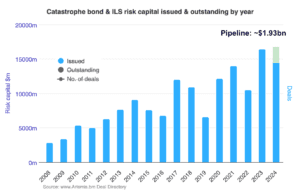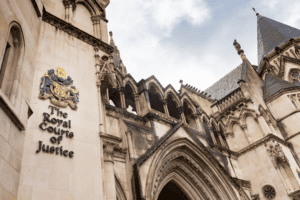Which of the following is not protected by FDIC?
Which of the following is not protected by FDIC?
Increasingly, institutions are also offering consumers a broad array of investment products that are not deposits, such as mutual funds, annuities, life insurance policies, stocks and bonds. Unlike the traditional checking or savings account, however, these non-deposit investment products are not insured by the FDIC. May 8, 2020
Where is the safest place to save your money?
Key Takeaways. Savings accounts are a safe place to keep your money because all deposits made by consumers are guaranteed by the FDIC for bank accounts or the NCUA for credit union accounts. Deposit insurance for savings accounts covers $250,000 per depositor, per institution, and per account ownership category.
Are all banks FDIC-insured?
In general, nearly all banks carry FDIC insurance for their depositors. However, there are two limitations to that coverage. The first is that only depository accounts, such as checking, savings, bank money market accounts, and CDs are covered.
Do beneficiaries increase FDIC insurance?
By setting up beneficiaries on your account, you can increase your FDIC coverage. For example, joint account owners who qualify for $250,000 each in FDIC coverage would increase their coverage to $750,000 each if three beneficiaries are named to their Savings account.
Are IRAs FDIC-insured?
Traditional and Roth IRAs from Principal Bank® offer the features and tax advantages IRAs are known for, with the added security of FDIC insurance up to $250,000 per depositor.
Is FDIC per account or per person?
The standard deposit insurance amount is $250,000 per depositor, per insured bank, for each account ownership category. The FDIC insures deposits that a person holds in one insured bank separately from any deposits that the person owns in another separately chartered insured bank. Mar 8, 2022
Are bank accounts insured against theft?
Key Takeaways. The Federal Deposit Insurance Corporation (FDIC) is a deposit insurance program backed by the federal government that protects bank depositors for up to $250,000. The FDIC, however, does not cover instances of identity theft and the financial losses that may accompany it.
What is DOD dental insurance?
The Tricare Dental Plan (TDP) is a voluntary dental insurance program. The dental benefit is administered by United Concordia and is available to eligible active duty family members, eligible National Guard and Reserve members and their family members. Apr 22, 2021
What is a standard life insurance policy?
Standard Life Insurance means life insurance that could be purchased from a commercial life insurance company at standard rates without a surcharge assessed, based on an individual’s general good health.
What kind of insurance is the standard?
The Standard is an insurance company that sells group life and accidental death and dismemberment insurance policies. Unlike other companies, it doesn’t offer life insurance for individuals, so you can only purchase insurance from The Standard if you work for a participating employer.
What is standard secure access?
Beneficiaries may receive their funds via Standard Secure Access (SSA) in accordance with the terms of the group policy. SSA is a convenient, interest-bearing checking account in which life insurance proceeds are deposited.
Who is eligible for United Concordia?
Family members of active duty service members (ADSMs) and National Guard and Reserve family members: Spouses. Unmarried children until reaching age 21 (including stepchildren, adopted children—both pre-adoptive and finalized adoption—, and court-ordered wards).
What is TRICARE dental called?
The TRICARE Dental Program (TDP) is a voluntary dental plan. Sponsors can enroll through the Beneficiary Web Enrollment website.
What are the 5 main types of insurance?
Home or property insurance, life insurance, disability insurance, health insurance, and automobile insurance are five types that everyone should have.
At what age should you stop life insurance?
You may no longer need life insurance once you’ve hit your 60s or 70s. If you’re living on a fixed income, cutting the expense could give your budget some breathing room. Make sure to discuss your needs with an insurance agent or a financial advisor before making any major moves.





